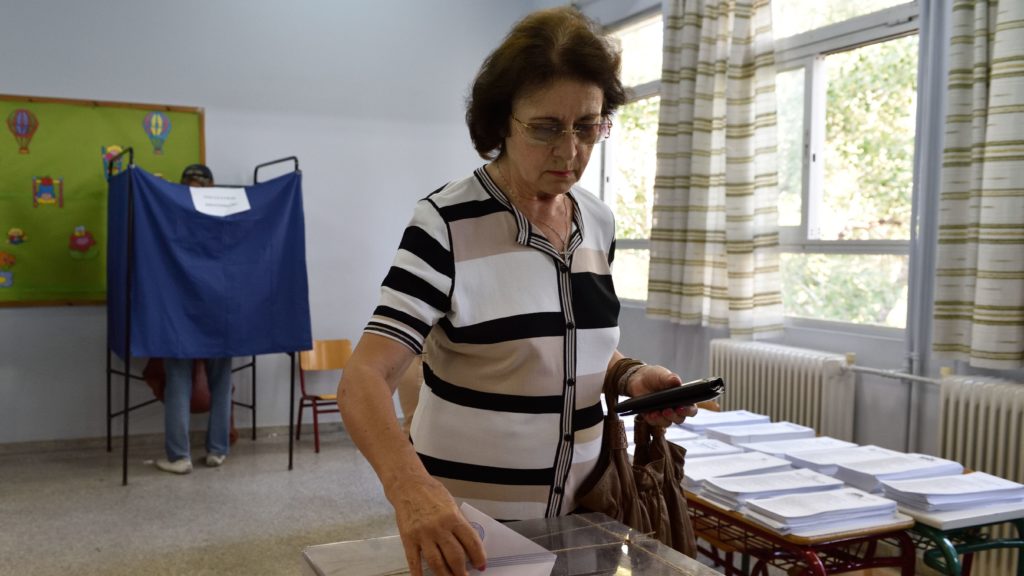Now that the Greek Minister of Interior, Panagiotis Skourletis, commited to present a draft legislation to the Hellenic parliament regulating the voting rights of Greeks abroad, it is important to disperse some myths, deliberately nurtured in Greece, but also within the diaspora.
Undoubtably, the majority of Greek political parties, but also the vast majority of Greek citizens, are against the suggestion that Greeks abroad should have the right to vote in Greek elections; all promises made so far have been nothing but a smokescreen.
Their basic argument is that “Greeks living abroad cannot decide on the lives of people living in Greece.” It is a viewpoint shared by almost the majority of Greeks abroad – or at least in Australia. Very few of our fellow community members actually want to vote in Greek elections. I have to admit, that I am part of this minority.
I hear a lot of people saying: “why should our children and grandchildren have the right to vote? They have never been in Greece and have no idea what’s going on there.”
I agree.
But let’s take things from the top. Greek citizens living outside of Greece have been asking for a way to exercise their constitutional right to vote in Greek national elections from their place of residence for more than 40 years. During that time, some – a small minority that can afford to – have flown to Greece at their own expense, while others have continuously been exploited by Greek political parties, which had been arranging for mass transport of voters from Australia to Greece, through Olympic Airways. We’ve lived this in Australia and we remember.
Today, almost all EU countries offer their citizens the right to vote when they are abroad – as does Australia. Greece has yet to legislate on this matter, despite being written in the constitution.
Nea Dimokratia was the only political party to present a draft bill to the Parliamentary Committee for Greeks Abroad in April 2009, only to have it rejected by the parliamentary majority of PASOK, reasoning that the bill did not address the demands of Greeks abroad for actual representation in parliament.
Nobody says that all people of Greek background should have the right to vote; there should be certain prerequisites. The right to vote should be reserved for Greek citizens, holders of a Greek passport, who are permanently residing abroad – obviously, there should be a limit to the length of time of residency, as is provisioned by Australian legislation.
At the same time, the fear expressed by many; that the myriads comprising the Greek diaspora could affect the outcome of the Greek elections, is completely unfounded.
One should look no further than the Italian community in Australia: no more than 30,000 of them vote in the Italian elections. EU data show that out of the 10,013,084 registered voters in Greece, only 14,944 – i.e. 0.15 per cent of voters – were living in other EU countries during the 2014 Europarliament elections. That is 14,944 voters among the approximately 450,000 Greeks living in EU countries.
There is not a chance that Greek voters residing in Australia would account for more than 20,000 people. As for the fear of affecting – or altering – the elections outcome, it depends on how these votes are counted – and this has to be clarified in advance.
If the votes of the Greeks abroad is counted along those of people in Greece, then it is easy to understand how Greek political parties would accuse Greeks whenever the fate of a ‘marginal’ seat was determined by a few votes. This model – to allow Greeks abroad to vote in the electorate that they had been registered – is not what Greeks abroad wish for, because it is not a proper representation of their political will, and it does not ensure their own representation in the parliament.
If we really want to achieve a model of substantial representation of the Greeks abroad in the Greek parliament, then we should separate these votes from the sum, creating special electorate divisions, according to place of residency (Europe, America, Africa, Asia, Oceania), each sending a number of MPs to parliament, as happens in France, Italy, Portugal, Croatia, and so on.
In my view, the most important thing is to ensure that our voting rights allow us to maintain strong bonds with Greece – this is something that will be beneficial to the motherland.
As for those afraid that Greeks abroad will end up being divided and fighting over Greek politics, this is also not a valid fear. Even now, without the right to vote, we are perfectly able to find reasons and ways to fight with each other!









